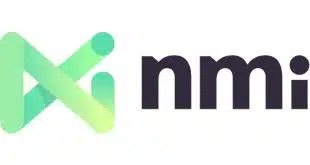As promised, the Electronic Transactions Association has updated its 2014 guidelines for merchant acquirers and independent sales organizations on merchant underwriting and monitoring. And more updates are likely as technology and regulators keep the pressure on merchant processors to stay ahead of risks to the payment system.
“We really want to be at the forefront,” Amy Zirkle, director of industry affairs at the the Washington, D.C.-based acquirer trade group, tells Digital Transactions News. She adds that more than 70% of the ETA’s 550 members have a copy of the original guidelines.
The ETA indicated at the Northeast Acquirers Association conference last month that it was putting the finishing touches on the updated guidance. New additions, according to an ETA news release, include:
• Guidance on spotting merchants’ attempts to conceal interrelated companies or the true owners of companies;
• Recommendations for reviewing offer terms and conditions for merchants that engage in so-called negative option marketing—the practice of booking a sale unless the consumer explicitly indicates no;
• Underwriting guidance for a variety of merchant categories that have been in the cross-hairs of regulators and law-enforcement bodies in recent years, including non-bank consumer lenders, payday lenders, debt collectors and debt-relief services, fraudulent fundraising, and payment aggregators and facilitators;
• Recommendations on moving an ISO portfolio from one processor or acquirer to another; and
• Guidance on the use of non-traditional partners or third-party agents subcontracted for sales functions.
Much of the new material reflects the advance of technology in just the two years since the guidelines first came out, according to Zirkle. “It’s a byproduct of what’s going on in the industry,” she says.
Another big motivation is avoiding the ire of federal regulators, including the Federal Trade Commission, the bank-regulator agencies, and the U.S. Department of Justice. The DoJ’s Operation Choke Point, which attempted to cut off payment-processing services to allegedly fraudulent merchants, has been a particular sore point in the acquiring industry. Acquirers and their supporters in Congress have accused the government of ensnarling innocent payments firms in a campaign against disfavored industries.
The ETA supported a bill that would effectively end Operation Choke Point, H.R. 766, the Financial Institution Customer Protection Act, which passed the U.S. House of Representatives Feb. 4. The bill was referred to the U.S. Senate, where no equivalent measure had already been introduced.
Zirkle says the ETA’s Risk, Fraud and Security Council, which has about 40 member companies, will review the underwriting guidelines frequently. “Our perspective, on an annual basis, is to review, refresh as necessary,” she says.



